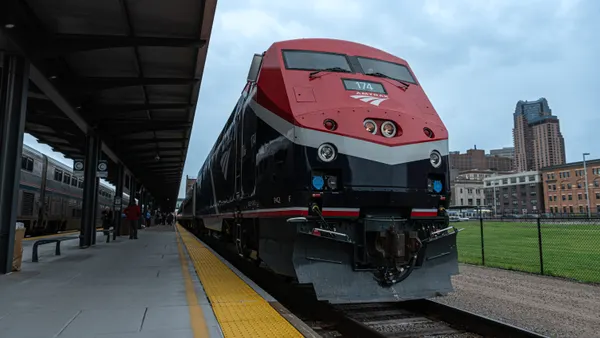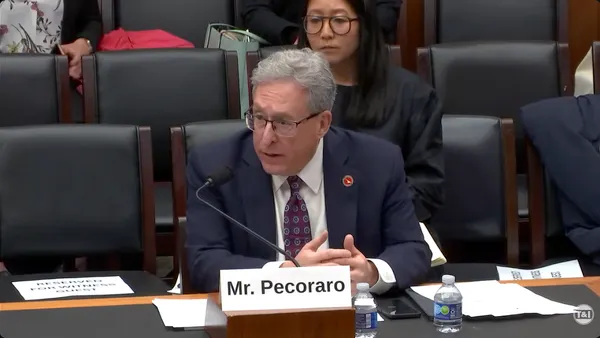Dive Brief:
- The Metropolitan Atlanta Rapid Transit Authority (MARTA) has chosen Siemens as its long-term digital and technical services provider for the Atlanta Streetcar, according to a company press release.
- Streetcar maintenance will transition from corrective to preventative using a digital platform, Railigent, that analyzes gathered data and predicts problems before they occur.
- Siemens says the data analysis will help to reduce both costs and service interruptions, while improving streetcar availability.
Dive Insight:
The Atlanta Streetcar has fielded a lot of criticism up to and since its opening in 2014, beginning with years of service launch delays and cost increases. It also took heat for having such a short route: a 2.7-mile loop in downtown Atlanta. In 2015, the Federal Transit Administration cited concerns with the streetcar's safety and operations, followed by the Georgia Department of Transportation's (GDOT) threat to shut down the system in 2016. Last year, a report indicated that the streetcar was moving 700 riders a day, far less than its anticipated 2,000 daily riders.
Those factors contributed to last year's decision for the city to turn over streetcar operations to MARTA. The system has been improving on a number of fronts, with a better report card from GDOT and an increase in ridership last year. Plans are also in the works to expand the system.
The transition to predictive maintenance should further improve the system and alleviate safety concerns. The rail system currently employs four Siemens S70 light rail vehicles (LRVs). Railigent will conduct analyses based on data gathered from on-board systems to identify equipment failures before they happen, as well as to predict traffic bottlenecks to reduce delays. The changes should also improve efficiency, which could lead to reduced energy consumption.
Last year the company also opened its digital innovation center, Mindsphere Application Center for Rail, on the Georgia Tech campus. Operations at that facility will include studying sensor-gathered data from the Atlanta Streetcar, and from rail systems throughout the country. The center will work to advance software and LRV technologies, and to create what Siemens calls an "Internet of Trains," which will aid transit agencies in improving their operations.












